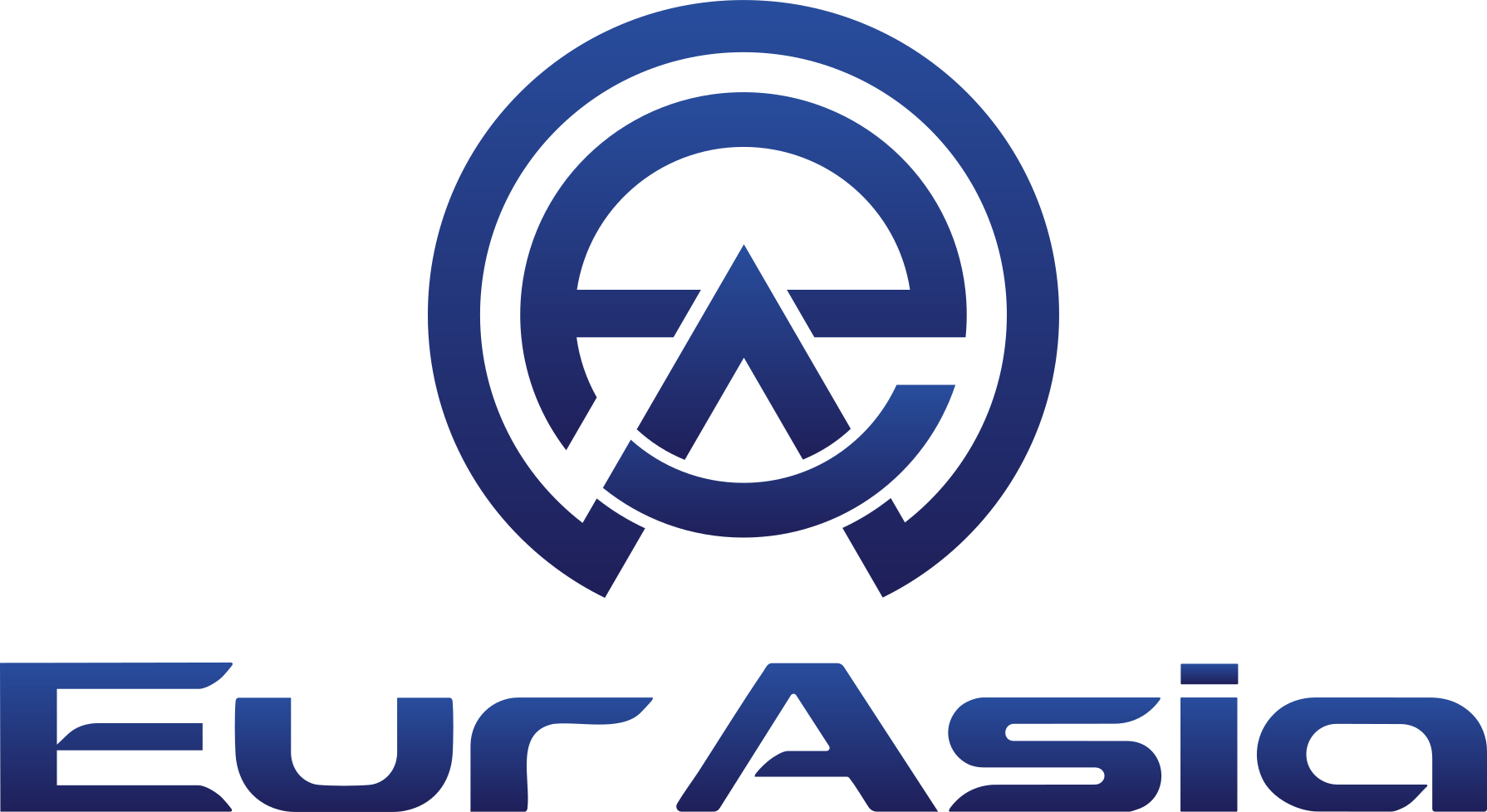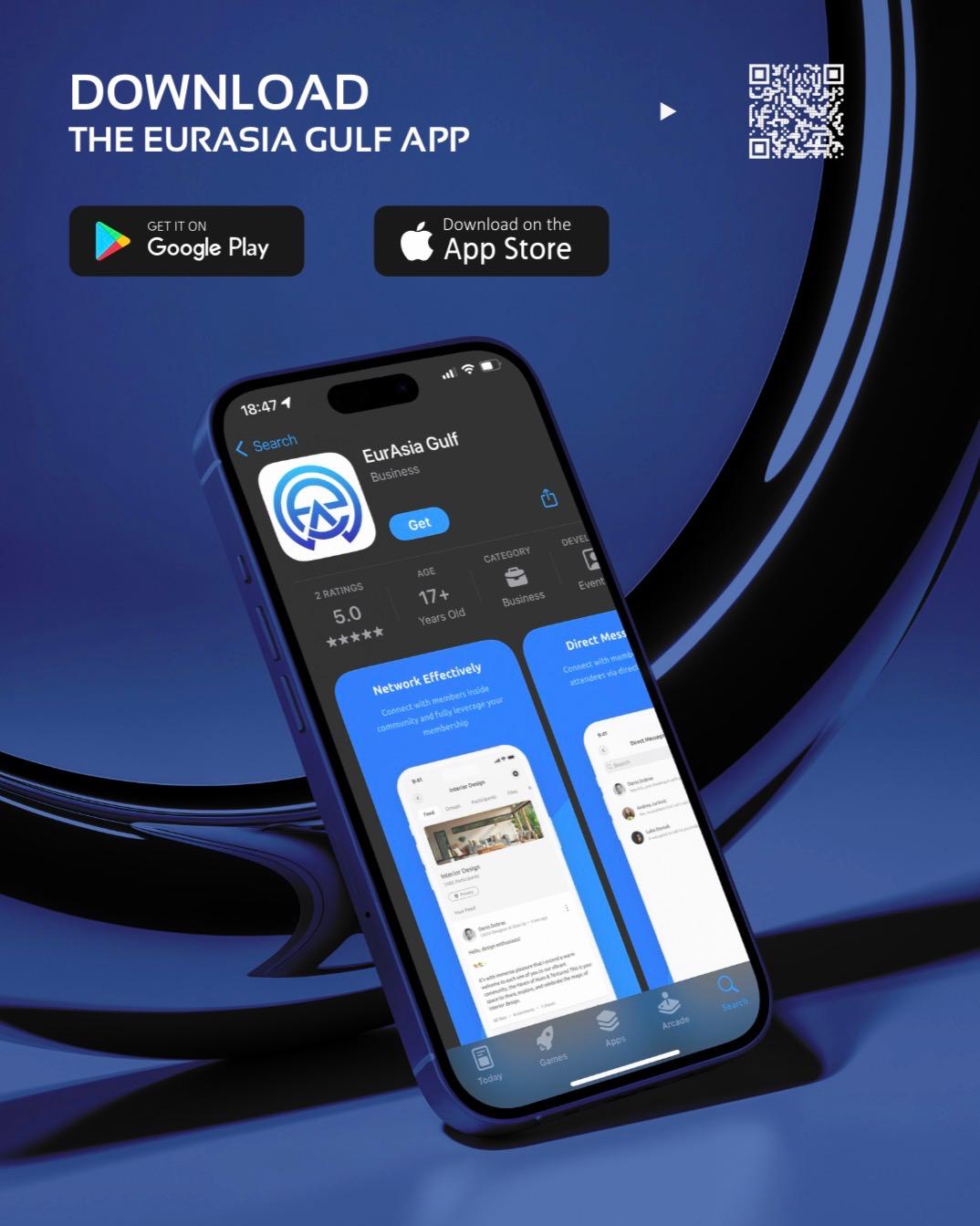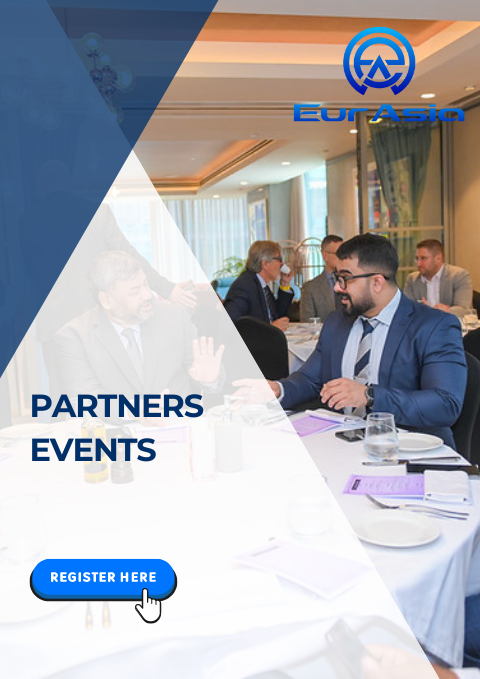In recent years, opportunities for Russian companies to cooperate with partners from the EU and North America have become significantly limited. Under these conditions, the Middle East and, primarily, the UAE have become particularly attractive for business development and establishing new business connections.
The United Arab Emirates is not only a promising market with a solvent population and a multicultural environment. It is one of the centers of international trade, a global financial and investment hub. Business ties with the UAE provide Russian entrepreneurs access to one of the world's most dynamically developing regions. The country offers low taxes, a stable economy, and a strategic location at the crossroads of Asia, Africa, and Europe. This is a chance for businesses to expand, attract investments and avoid risks associated with sanctions.
Helping to build successful partnerships in the Arab world
Ambition alone is not enough! A successful entry into the UAE market requires an understanding of local rules, cultural specifics, and competent support. Without this, neither long-term planning nor successful business operations in general are possible. EurAsia Gulf will facilitate business cooperation with the UAE.
For you, we have prepared a brief guide to get you better acquainted with the UAE market. You will learn about:
- Prospects for entering the market of the United Arab Emirates
- Economic relations between Russia and the UAE
- Advantages of entering the UAE market
- Legal aspects of business relations in the UAE
- Business registration in the United Arab Emirates
- Additional formats of cooperation and partnership: investments, business events, etc.
- Cultural features of business communication in the UAE
- Rules of business communication and etiquette in the UAE
- Strategies for building long-term business relationships
- The role of mediation in developing business ties with the United Arab Emirates
The importance of business ties with the UAE for international business
The United Arab Emirates is actively developing relations with countries from various regions of the world. Trade agreements have been concluded with 180 countries, and a double taxation avoidance treaty is in effect with 130 states.
But the UAE is more than just a promising, investment-open market with a growing economy. The federation of 7 emirates has become a key hub for international business and a center of business and financial activity in the Middle East. For example, Dubai surpasses Frankfurt, Zurich, and Chicago in terms of the volume of financial transactions.
What are the reasons for the high interest from investors, large multinational corporations, and startups?
Geographical Location
The UAE is located at the crossroads of trade routes between Asia, Europe, and Africa, practically in the very heart of the Middle East. It is an ideal point with established routes and logistics for accessing the GCC markets (Bahrain, Kuwait, Oman, Qatar, Saudi Arabia, and the UAE), North Africa (Egypt, Tunisia, Algeria), Pakistan, and India.
Developed Logistics
The international airports of Dubai and Abu Dhabi connect the region with over 200 cities worldwide. Thanks to the UAE's location, the flight time to most major cities and capitals in Europe, Asia, and North Africa is within 4-6 hours.
Jebel Ali Port handles over 15 million containers annually. It is the largest port in the Middle East, directly connected to ports in Asia, Africa, and Europe.
Legal Framework and Tax Benefits
The UAE has well-developed investment protection mechanisms. Liberal laws promote investment and business activity:
- Several legal regimes for business are available in the Emirates
- There are Free Zones where companies are exempt from profit taxes and customs duties on exports and imports
- Preferential conditions for operating in the domestic market
- Access to local clients for companies registered in free zones
- Opportunity to start a business with 100% foreign ownership without involving a local sponsor
- 100% capital repatriation is available without restrictions
A flexible legal system allows for choosing optimal conditions and optimizing the tax base for international companies.
Financial Infrastructure and Business Environment
The UAE has a stable banking sector with developed services for private clients and businesses, including tools for financing and investments. Full access to international payment systems. Fast processing of international settlements.
Business clusters have been created in Dubai and Abu Dhabi, combining office spaces, expo centers, conference halls, trade zones, and entertainment. The UAE has a mature business environment where thousands of foreign companies operate, and business events daily bring together representatives from dozens of countries.
Business ties with the UAE are a strategic decision when you need to expand your supply geography and enter new markets. According to the UAE Ministry of Economy, over the past 5 years, the number of foreign companies registered in the country has increased by more than 40%.
Economic Relations between Russia and the UAE
Business ties with the Emirates are even more significant for Russian business than for companies from other countries. The UAE maintains political neutrality and has a liberal approach to partnership with Russia. This is confirmed by investment volumes and the growth in trade turnover between the countries:
- 2021: about $3 billion.
- 2022: growth to $5 billion.
- 2023: $10.87 billion (an increase of over 100% in one year). A record figure in the entire history of relations between Russia and the UAE
- at the end of the first quarter of 2024, trade turnover between the countries continued to grow, increasing by 67% compared to the previous year's figure.
Key areas of cooperation include energy, high technology, agro-industry, and tourism. Russian companies successfully operate in the Emirates' market in the fields of oil and gas equipment, software, and educational services.
Structure of Russian exports to the UAE: precious stones and metals, oil and petroleum products, wheat and other grains, technological equipment, timber, and pulp and paper products.
Structure of imports to Russia: electrical equipment, technological equipment, plastics, chemical products, finished food products, jewelry.
The UAE, especially Dubai, has become a critically important logistics hub for Russia after the change in traditional supply routes. A significant volume of re-exports, including sanctioned goods, to and from Russia passes through the UAE.
Airlines "Emirates" (Dubai) and "Etihad" (Abu Dhabi) have become key bridges connecting Russia with the world.
Direct links between Russian and Emirati banks are actively developing, including the use of alternative interbank transfer systems (SPFS - the Russian System for Transfer of Financial Messages, an analogue of SWIFT). Both countries are striving for a more active transition to mutual settlements in dirhams (AED) and rubles (RUB). This has largely ensured the increase in investments.
Investments in Russia exceeded 700 billion rubles - the UAE became one of the largest investors in the Russian economy after the departure of Western companies. They are going into energy (cooperation between Lukoil and ADNOC), infrastructure, the financial sector, trade, and telecommunication technologies. Russian companies invest over 42% of all their investments in Arab states in the UAE (IT, biotechnology, etc.).
Double taxation avoidance agreements simplify operations. Negotiations on a free trade agreement between the EAEU and the UAE are nearing completion. This will reduce barriers to exports.
Also, the UAE is Russia's partner in OPEC+. They coordinate policies in the energy market. This stabilizes prices and strengthens economic cooperation.
Regular bilateral business missions, trade exhibitions, and investment forums are held, facilitating direct contacts between entrepreneurs.
Advantages of Entering the UAE Market
We have previously written about how to enter the UAE market. But establishing business ties with the UAE is not only about accessing international markets. The economy of the United Arab Emirates demonstrates stable growth and high development rates. Partnership with local companies provides access to a solvent local audience.
Key UAE economic indicators in 2025:
- GDP: over $500 billion. Forecasted annual growth of 4%
- Foreign Direct Investment: over $23 billion per year
- Non-oil export growth of 14.6% to 800 billion AED
- Over 85% of the UAE population are expatriates. A multicultural environment and demand for diverse goods and services have formed here
There are optimal conditions for startups and testing new products before entering new markets: easy to attract investments, access to different target audiences.
Other Advantages
Business partners from the UAE offer access to modern logistics infrastructure. This includes the Jebel Ali port, the largest in the region. The international airports of Dubai and Abu Dhabi have become the main transit hubs for air travel in the region.
The UAE's financial system ensures fast international settlements and allows for effective management of international cash flows.
Legal Aspects of Business Relations in the UAE
The legal framework of the UAE creates favorable conditions for international partnership. Foreign companies can own 100% of the capital in all jurisdictions of the country since 2021. Various tax optimization schemes are available through the use of free economic zones and offshore jurisdictions. Entrepreneurs can choose the most suitable form of activity depending on the specifics and development plans of the business.
However, it is necessary to consider that the UAE's legal system combines elements of Islamic law with modern international business standards. It is important for foreign companies to understand the basic principles of local legislation governing commercial activities.
Main forms of presence in the UAE:
- Company registration in the Free Economic Zones of the UAE: Full foreign ownership; Tax benefits for up to 50 years; Simplified licensing procedures; Access to the domestic market may be possible in certain sectors upon obtaining additional licenses.
- Opening a company on the mainland: Unrestricted access to the local market; Opportunity to obtain government contracts; Corporate tax of 9% on profits over $100,000.
- Establishing a representative office or branch: Brand promotion and partner search; Limited commercial activity; Minimal regulatory requirements.
- Registering an offshore company in the UAE: full exemption from taxes and customs duties; free movement of capital; reliable jurisdiction; activity within the UAE with local clients and government structures is not permitted.
Documentation requirements in the UAE
Documents required for company registration and operation in the UAE, as well as agreements between Russian and Emirati companies, must take into account the specifics of local law.
Key features and requirements:
- All business agreements must be translated into English
- Notarization is mandatory for signed contracts
- International partners must provide company registration documents legalized according to local requirements.
For document legalization, entrepreneurs from Russia only need to apostille the corporate documents with the authorized body in Russia and obtain a notarized translation into Arabic or English from a certified translator in the UAE.
For countries that are not parties to the Hague Convention, the document legalization chain is more complex: notary -> Ministry of Justice or Chamber of Commerce and Industry of the country of origin -> Ministry of Foreign Affairs of the country of origin -> Consulate of the destination country in the country of origin -> notarized translation into Arabic by an accredited translator in the UAE -> attestation by the UAE Ministry of Foreign Affairs (MOFAIC).
It is additionally recommended to include arbitration clauses in contracts, defining the dispute resolution procedure. The UAE recognizes international arbitration decisions, providing additional protection for the interests of the parties.
Opening a bank account
The UAE banking system has strict requirements for opening corporate accounts. UAE banks adhere to strict KYC (Know Your Customer) and AML (Anti-Money Laundering) rules. The procedure can take from 4 to 12 weeks.
It is necessary to provide detailed information about the company's activities, sources of income, and business partners.
List of documents for opening a corporate account in the Emirates:
- Full set of company incorporation documents, legalized according to local rules
- Documents of beneficiaries and directors
- Business plan and expected turnover
- Contracts with counterparties (invoices, agreements) to confirm the legality of activities
- Bank statements from current accounts.
Intellectual property protection in the UAE
The UAE is a party to the main international agreements on intellectual property protection. Companies can register trademarks, patents, and copyrights through the relevant government authorities. This is especially important for technology companies planning to develop activities in the region.
The Emirates also have relatively modern data protection legislation. Companies are obliged to comply with requirements for storing and processing customer information.
Business Registration in the United Arab Emirates
The company registration procedure in the UAE is simplified to attract investments. Entrepreneurs can choose the most suitable jurisdiction depending on the specifics of the activity and business development plans.
Main stages of registration:
- Choosing the company type and jurisdiction
- Preparing and submitting documents
- Obtaining a trade license
- Opening a corporate bank account
- Registration with tax authorities
Registering an offshore company in the UAE attracts many international investors due to the preferential tax regime. Suitable for holding activities, investment management, and international trade. However, there are restrictions on conducting commercial activities within the country.
Free Economic Zones are the most attractive format for foreign investors. Companies receive the right to 100% foreign ownership, exemption from corporate tax for a certain period, and simplified import and export procedures.
Assistance with business registration in the UAE is provided by EurAsia Gulf. We support the entire process from document preparation to obtaining the necessary licenses. With us, you will avoid mistakes and can reduce the project launch time from months to weeks.
Additional formats of cooperation and partnership
Entering the UAE market is not limited to just exports or registering a legal entity. Other formats of business relations with partners from the Emirates are available, which can help expand business opportunities and access new markets.
Formats of business ties with the UAE:
- Trade and economic cooperation - supply of goods, creation of distribution networks, participation in government procurement;
- Investments and joint ventures (JVs) - local partners help enter the market faster and share risks;
- Representative offices and branches - a convenient tool for companies that want to establish themselves in the Emirates and be closer to customers;
- Business events - international exhibitions, industry conferences, business missions, and forums where new contacts are established.
Each of these formats has its own nuances. A license from the DED, registration in a Free Zone, or special visa solutions for employees may be required.
It is difficult to understand the details without an experienced guide. EurAsia Gulf will help bring your business to the UAE market and find local partners. We support the business at every stage - from choosing a cooperation model to legal formalization and negotiations with partners. We will help organize an exhibition stand, assist in establishing contacts and conducting negotiations. We will provide consultations on business etiquette.
Cultural features of business communication in the UAE
Although a modern business environment has formed in the Emirates, and the majority of residents are expatriates, traditional Islamic values still play a significant role in business. Therefore, successful negotiation with Arab partners and, in principle, the success of any project in the UAE requires a deep understanding of local traditions and features of business culture.
What you need to understand before establishing business ties?
- Personal communication comes first. In the Arab world, great importance is placed on personal relationships. All important matters are discussed only in person - this allows understanding each party's position and finding mutually beneficial solutions.
- Be prepared that building connections will take a lot of time. Time is perceived differently in Arab culture than in Western countries. Punctuality is important, but negotiations may last longer than planned. Do not show impatience or rush partners into making decisions. Such an approach can be perceived as disrespect. Note that negotiations in the Arab world rarely conclude with a final decision at the first meeting. Partners may require time to consult with colleagues or family. Patience and persistence are key qualities for successful negotiations.
- Do not refuse hospitality. Hospitality plays a central role in the region's business culture. An invitation to a restaurant or home is considered a sign of respect and trust. Meetings are often accompanied by refreshments, and refusing them may be perceived negatively. Traditional Arabic coffee and dates are served at almost all business meetings as a symbol of hospitality and respect for guests.
- Avoid sensitive topics. Questions related to politics or religion are best avoided in business communication. Safe topics for conversation are family, travel, local cuisine, and culture. Knowledge of some facts about the history and traditions of the UAE will help make a positive impression on partners.
- Connections and recommendations can speed up the process. In Arab countries, family connections and recommendations hold special significance. Representatives of influential families can significantly accelerate the business decision-making process. Recommendations from respected business partners open access to new cooperation opportunities.
- Family and traditions come first. Note that if the choice is between religious or family traditions and a business meeting or fulfilling contractual obligations, family will be the priority. When planning business meetings and preparing for projects, consider religious holidays and weekends.
- "Yes" at the first meeting does not mean agreement. In Arab culture, a direct refusal is often considered rude. Therefore, note that agreement at the first meeting is not necessarily a definitive yes. Decisions require lengthy coordination and are made at the highest level. This requires much more than one meeting; sometimes, building connections takes months. Similarly, if you were promised something "tomorrow," this is an agreement for the future.
General recommendations for business communication
- Show respect to elders in age and status
- Use your right hand to pass documents, gifts, or business cards
- Avoid direct refusals, preferring diplomatic phrasing
- Demonstrate interest in local culture and traditions
- Respectful attitude towards women in the business environment
- Don't rush, prepare for a gradual development of relationships, which requires not one, but many personal meetings
- Consider religious holidays and prayer breaks during the day when planning meetings
When establishing business relations with partners from the UAE and other Arab countries, remember that the time spent building trusting relationships always pays off in the future.
Rules of Business Communication and Etiquette in the UAE
Business meetings in the UAE have their own characteristics. Business relationships are built on respect and personal connections. Arab culture emphasizes hospitality and hierarchy. Understanding these principles is critically important for achieving successful results. Ignoring traditions can derail a deal.
- Preparation for negotiations. Plan meetings at least a week in advance, and confirm the time and place the day before. Be sure to account for holidays and prayer times. English has long been the language of business communication in the UAE. Translate all presentations, as well as information about the company and its achievements, in advance.
- Greeting and introduction. First, greet the person with the highest status (or the eldest by age). Handshakes are soft, using the right hand. Greet women with a handshake only if she offers her hand first. Maintain eye contact. This is a sign of respect. Say "as-salaamu alaykum." The response is "wa alaykum as-salaam." Exchange business cards in English and Arabic.
- Language and communication. Traditionally, negotiations are conducted in English. But knowing a few Arabic phrases is a way to show respect and interest in business ties. A good way to build trust. Also use compliments. Show interest in local culture; you can learn some facts in advance to sustain conversation. Avoid a direct "no." Express refusal diplomatically. In correspondence, be formal, use it only for coordinating meetings and other details. It's better to call or meet in person.
- Negotiations and meetings. Schedule meetings in advance. Being 15-30 minutes late is normal for Arab business partners. The first 15-20 minutes of a meeting are usually dedicated to informal communication. Arab partners are interested in personal life, family, impressions of the UAE. This time lays the foundation for trusting relationships. Decisions are made slowly. Partners may require time to consult with colleagues or family. Also note that at the first meeting you will communicate with a company representative, but the final word belongs to the owner. Phone calls during the meeting are normal.
- Table etiquette. Meetings often take place over meals. During the meal, general topics are discussed; business matters are touched upon briefly - substantive discussions happen after the meal. Use your right hand when eating. Refusing coffee may be perceived as disrespectful. Avoid pork and other non-halal products. Find out in advance about the attitude towards alcohol. The host pays in a restaurant.
- Gifts and tokens of attention. Gifts are part of the culture. Choose neutral ones: souvenirs from your country. The gift should not be too cheap or generic. A handmade figurine or an album with landmarks is suitable. Do not give alcohol or products made from pigskin as gifts. Present the gift at the first meeting. This shows respect and interest in the partnership.
Clothing and Appearance
In Muslim countries, status is also determined by appearance. How you are dressed can affect relationships with partners. The preference for men is a dark-colored business suit with a tie. For women - closed clothing without cleavage. Sleeves to the elbows, skirts below the knee.
Overly bright colors, images of animals, or an abundance of jewelry are unacceptable. But status items, such as expensive watches, cufflinks, can emphasize influence.
Strategies for Building Long-Term Business Relationships
Building long-term partnership relations with business representatives from the Persian Gulf countries requires patience and a strategic approach. Arab partners value stability and reliability, so it is important to demonstrate seriousness of intent from the first contacts.
Relationship development happens gradually. The first meetings may not lead to immediate results but lay the foundation for future cooperation. Arab businessmen prefer to work with companies that are willing to invest time and resources in building relationships, rather than those seeking quick profits.
Principles for developing partnerships with representatives from the UAE and other Persian Gulf countries:
- Regular personal presence: Monthly visits by key managers; Participation in local exhibitions and conferences; Opening a representative office or office in the UAE.
- Investment in relationships: Inviting partners to the company's country of origin; Organizing joint events and presentations; Supporting partners' charitable initiatives.
- Adaptation of products and services: Accounting for local requirements and standards; Localization of marketing materials; Compliance with Islamic business principles.
Business partners in the UAE value companies that invest resources in the development of the local economy. Creating jobs, training personnel, and transferring technology enhance the reputation of an international partner.
The Role of Mediation in Developing Business Ties with the United Arab Emirates
Developing business ties in the UAE has many nuances. Here, personal relationships are more important than contracts. Without connections, negotiations drag on. Lack of knowledge of etiquette and cultural traditions is not just a formality: errors in accounting for cultural and legal specifics can nullify months of preparation. Independent market entry into the UAE without understanding local specifics costs on average $150-300 thousand due to lost time and erroneous decisions.
The EurAsia Gulf company will help accelerate the process, avoid mistakes, and lay a reliable foundation for developing business relations in the UAE. Our clients save funds and gain competitive advantages from the first weeks of operation.
EurAsia Gulf is a business platform that brings together investors, entrepreneurs, and representatives of government structures. Experience working with companies from Russia, Kazakhstan, Uzbekistan, and other countries in the region. Our goal is to develop economic ties between Central Asia, Eastern Europe, and the Middle East. With us, you gain access to a verified network of contacts, as well as the ability to use collective experience to solve complex international business tasks.
What you get when cooperating with EurAsia Gulf:
- Immediate results (first 30 days): Personal analysis of your business opportunities in the UAE; Access to a database of 2500+ verified business contacts; 3-5 targeted B2B meetings with potential partners; Detailed roadmap for market entry.
- Medium-term perspective (3-6 months): Complete business registration in the optimal jurisdiction; Open bank accounts in 2-3 leading regional banks; A functioning office with ready infrastructure; A team of local specialists.
- Strategic advantages (from 6 months): Status as a recognized player in the UAE market; Access to closed investment deals; Partnership relations with influential business representatives; A platform for expansion into the Persian Gulf countries.
We help companies not just register a business in the UAE, but create a sustainable platform for long-term development in the region. Our clients gain access to exclusive business events, industry analytics, and personalized support from experienced consultants.
Results of our work:
- 150+ companies successfully entered the UAE market
- $500+ million total volume of implemented projects
- 85% of clients secure their first contracts within 3 months
- 12 industry committees for specialized support
Important! The number of spots in EurAsia Gulf's exclusive programs is limited. We work with only 50 new clients per year to ensure a personalized approach and guaranteed results.
Contact us today to receive a personal consultation and assess the potential of your business in the UAE. Every day of delay is a missed opportunity in one of the world's most dynamically developing regions.











